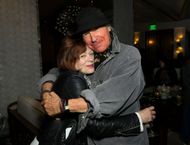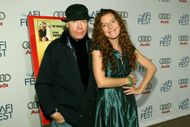Henry Jaglom, the independent filmmaker, playwright, and actor, died at age 87 on September 22, 2025, at his home in Santa Monica. His daughter, filmmaker Sabrina Jaglom, confirmed to The Hollywood Reporter. He was known for his personal approach to filmmaking and for creating stories that blurred the line between real life and art.
Jaglom built a career outside the Hollywood system. His movies usually touched on relationships, personal conflicts, and female experiences. He did not adhere to conventional scripts and rehearsals and preferred improvisation and dialogue between his actors.
Jaglom had a profound impact on independent cinema, although he is little known in the mainstream. People who appreciate cinema still go back to his films and scripts.
Henry Jaglom's life and career

Henry Jaglom was born in London, England, in a Jewish family of Russian and German origin. After studying English at the University of Pennsylvania, he decided to pursue acting and relocated to the United States in the late 1960s. He attended the Lee Strasberg Actors Studio in New York.
Film and television acting under Columbia Pictures was his gateway to the industry, where he was involved in The Flying Nun, Dennis Hopper's The Last Movie (1971), Richard Rush's Psych-Out (1968), among others.
In an interview with Robert K. Elder for The Film That Changed My Life, Jaglom confessed that his transition from acting to directing was through Fellini's film 8½. Thereafter, he got a chance to help with the editing of Dennis Hopper's Easy Rider (1969). His first film, A Safe Place, was released in 1971 and starred Orson Welles, Tuesday Weld, and Jack Nicholson.
As reported by the New York Times, Jaglom was tight on budget and often included personal locations and people he was close to. Such is the case with the 1995 film, Last Summer in the Hamptons, which was shot in his parents' house in the East Hamptons.
Read More: Denis Villeneuve to look for the new Bond actor soon after finishing Dune: Part Three
Films and style

Henry Jaglom is a director of several famous independent movies. Among his most successful works, one can distinguish Can She Bake a Cherry Pie? (1983), New Year's Day (1989), Eating (1990), and Déja Vu (1997). These films were full of dialogue and based on ordinary relationships.
His style of filmmaking was not similar to the classical Hollywood movies. According to The Hollywood Reporter, he rarely used full scripts. Rather, he gave his actors room to improvise, focusing on the complexity of people and the relationships they inhabit, over a basic plotline. This sheds light on the deeply sketched out characters, their thoughts, as well as the dialogues within his works. Jaglom's method divided critics. His work was praised as fresh and meaningful, while others found it to be unstructured.
Although his works received mixed reviews, Henry Jaglom had a cult following among cinephiles and people who appreciated independent cinema. He was admired because of his attention to the voices of women and for providing space for topics that are not commonly discussed in popular productions.
Inspired by his life experiences and emotions, Henry Jaglom's filmography and writing focused on the human condition. Although he never gained a vast audience and was largely outside the confines of Hollywood, his impact on independent cinema is quite apparent.
Love movies? Try our Box Office Game and Movie Grid Game to test your film knowledge and have some fun!
